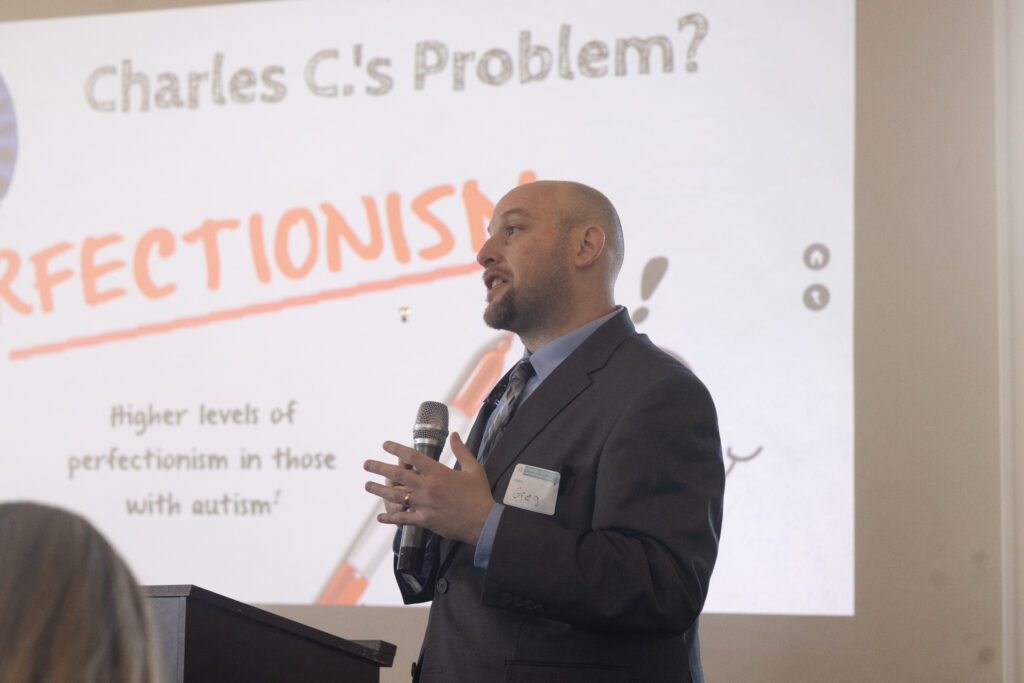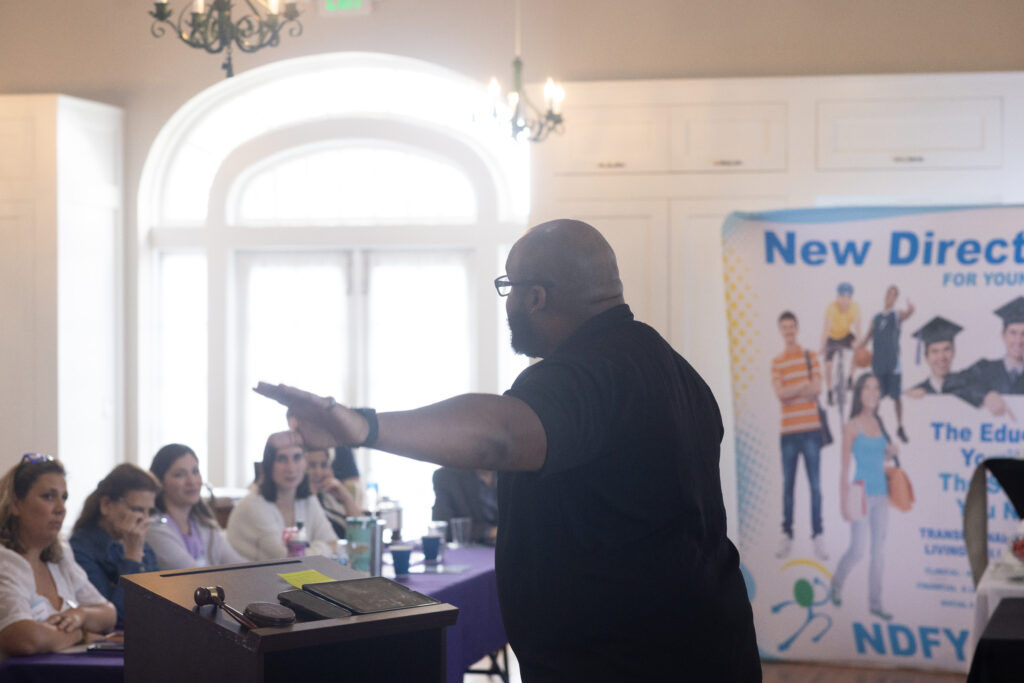Hollywood, Florida. Sunshine. Community. Breakthrough ideas.
That was the backdrop—and the vibe—at the 2nd Annual Autism Research & Training Symposium (ARTS), held February 18–20, 2025. This wasn’t your typical autism conference. It was a gathering of changemakers—researchers, clinicians, vocational leaders, parents, and advocates—focused on one mission: empowering adolescents and young adults with autism to lead independent, fulfilling lives.
Themed “Empowering Adolescents and Young Adults: Innovations and Insights in Autism,” the event combined clinical expertise with lived experience to tackle one of the most pressing issues in the autism community: what happens after childhood support ends?
Here’s what made ARTS 2025 a standout and why its insights are already making waves in clinics, classrooms, and communities.
A Mission That Matters
The ARTS Symposium is driven by more than education—it’s about transformation. The goal? Equip professionals, caregivers, and advocates with the knowledge to support individuals on the spectrum as they navigate the crucial, often under-resourced transition into adulthood.
From vocational programming to mental health, the emphasis was on practical, research-based solutions to real-world challenges. Every talk, workshop, and panel pointed back to this: how do we create environments where neurodivergent young adults can succeed, not just survive?
Symposium Highlights: 3+1 Days of Insight and Connection
Day 1: Deep Dive with Dr. Chasson or Local Impact Tour

The optional pre-symposium workshop featured Dr. Greg Chasson, a national leader in autism and perfectionism research. His session, “Waiting for ‘Just Right’: Treatment Techniques for Level 1 Autism and Perfectionism,” offered a packed room of clinicians hands-on tools for treating Not Just Right Feelings (NJRFs)—the compulsive need for things to feel “complete” or “perfect.”
🔑 “NJRFs can quietly derail daily life, and they’re often misunderstood. This workshop helped me not only identify them, but build a clear treatment plan using ERP, ACT, and DBT principles,” said one attending psychologist.
Those who didn’t attend the workshop were offered a New Directions Open House Tour..
Day 2: Innovations on the Ground
This was the heart of the symposium. A full day of one-hour sessions brought a multidisciplinary lineup of speakers—clinical psychologists, neuroscientists, vocational specialists, and parents of young adults on the spectrum.
Hot topics included:
- Pharmacological and non-invasive interventions (like TMS and neurofeedback)
- Co-occurring conditions in late adolescence
- Building adaptive life skills through biofeedback and behavior modeling
- Real-world employment supports that actually work
What set these sessions apart was how relevant they were. No ivory tower theories—simply strategies you could use tomorrow.

One standout session: a presentation on using neurofeedback to manage executive functioning challenges in young adults with autism. Another highlight: Tony Jackson, a dynamic speaker who brought energy, humor, and practical insight on vocational inclusion.
Day 3: Collaboration on Stage
On the final full day, the tone shifted from teaching to talking. An open-panel discussion invited audience participation and dialogue between presenters, practitioners, and parents. This was the “unscripted” part of the conference, where people could ask the tough questions:
- What do you do when your 19-year-old is stuck at home and isolated?
- How do we teach flexibility without overwhelming?
- What should schools be doing now to prepare students for the real world?
That sense of community and shared purpose was a running theme throughout ARTS 2025.
Day 4: Optional Open House Tour
For those who stayed an extra day, the New Directions Open House offered another chance to see support in practice. From vocational coaches to social engagement tools, attendees got to explore how this model supports independence and why it’s being looked at as a blueprint for autism transition programs nationwide.
Dr. Greg Chasson’s Workshop: Why Perfectionism Deserves More Attention
Let’s talk more about one of the event’s most talked-about sessions.
Perfectionism—especially as it manifests in individuals with Level 1 autism—is underdiagnosed and under-discussed. Dr. Chasson’s workshop reframed it not as a personality quirk, but as a serious driver of distress, rigidity, and burnout.
He introduced Not Just Right Feelings (NJRFs)—those internal signals that something is “off,” even if everything looks fine externally. NJRFs can trap individuals in cycles of over-correction, checking, and emotional exhaustion.
Dr. Chasson offered a clinical roadmap:
- Assessment techniques for identifying NJRFs
- ERP frameworks specifically adapted for autism
- Language strategies that promote cooperation and reduce shame
- Use of ACT and DBT for long-term emotional regulation and cognitive flexibility
What Attendees Said

- “I loved the variety of perspectives—from academics to parents. You don’t always get that balance.”
- “The location was great, but the content was better. Every session had something I could take back to my practice.”
- “Dr. Chasson’s session was the best I’ve ever attended on this topic.”
- “Keep it small and personal—it makes a huge difference.”
Key Takeaways from ARTS 2025
- Perfectionism is a major issue for individuals with Level 1 autism. Targeting NJRFs can improve daily functioning and reduce distress.
- Vocational success requires early planning, family support, and programs that bridge the gap between therapy and real-world demands.
- Collaboration matters—symposiums that bring together researchers, families, and practitioners create more nuanced solutions.
- Evidence-based doesn’t mean inflexible. Sessions focused on adapting known treatments to individual needs.
Empowering the spectrum doesn’t start or stop with a diagnosis. It grows through knowledge, connection, and action, and ARTS 2025 delivered all three.
📣 Looking Ahead: Join Us for the 3rd Annual ARTS Symposium – January 20–22, 2026
The movement to empower adolescents and young adults on the spectrum continues—and it’s growing stronger.
Mark your calendars for the 3rd Annual Autism Research & Training Symposium (ARTS), happening January 20–22, 2026, once again in sunny Hollywood, Florida. With the same powerful theme—Empowering Adolescents and Young Adults: Innovations and Insights in Autism—next year’s symposium promises to raise the bar even higher.
This isn’t just an event to attend. It’s a platform to lead.
Submit Your Research: Call for Papers Now Open for ARTS 2026
The 2026 ARTS Symposium is now accepting abstract submissions from researchers, clinicians, educators, and advocates working to advance autism research, therapy, and advocacy. This is your opportunity to share innovative data, emerging treatment approaches, or insights that can shape the future of autism care.
Selected presenters will join global thought leaders to collaborate and contribute to meaningful change. Topics of interest include cutting-edge autism research, neuroscience, evidence-based therapies, inclusive education strategies, assistive technology innovations, and policy and community impact.
By submitting, you’ll gain professional recognition, engage with top experts, and help move the field forward. Don’t just attend ARTS 2026—be a part of leading it.
Learn more, stay informed, and/or submit your abstract to present at ARTS 2026 by visiting this link: https://internationalsocietyforautism.org/events/arts-2026/



